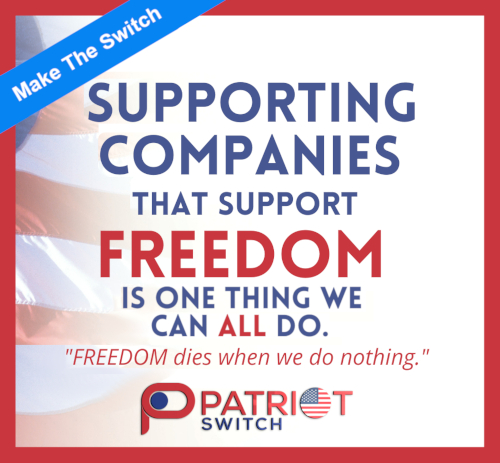In February 2012, a small news headline reported the death of Roger Boisjoly. Though his name might not be famous, his death was newsworthy because of his close connection to the explosion of the Space Shuttle Challenger in 1986.
Thirty-five years later, the horror of watching the Challenger explode in real time is still fresh, but so are the lessons learned from the tragedy.
Whistle Blower
In the mid-1980s, Roger Boisjoly was an engineer working for NASA contractor Morton Thiokol in Utah. Six months before the Challenger was set to launch, Boisjoly began writing memos warning managers at his company about booster rockets that would be used on the shuttle. In particularly cold weather, the elastic seals on the joints of the rockets (also called o-rings) would not seal properly; Boisjoly predicted that the results of such a launch would be catastrophic.
Unfortunately, his repeated warnings were ignored. Knowing the o-rings were becoming damaged upon launching, NASA had watched them for ten previous launches. Since no other shuttles had exploded, they brushed off the warnings – a concept known as “normalization of deviance” – even though any suspicion was supposed to ground a shuttle.
The night before the Challenger’s launch – with the forecast calling for subzero temperatures – Boisjoly and four colleagues were still imploring officials to delay the launch, but NASA refused. Publicity and excitement for the launch was high; school children all over the country were thrilled to see Christa McAuliffe, the first teacher in space. It was NASA’s biggest moment since man first landed on the moon in 1969 and they believed any delay would tarnish their image.
On January 28, 1986, the whistle blowers – along with the rest of the nation –watched, transfixed in horror, as the Challenger exploded just seventy-three seconds after liftoff.
Image Over Integrity
Both NASA and Thiokol were more interested in damage control than making ethical decisions; after the disaster, they shunned Boisjoly and blackballed him from the aerospace industry for telling his story. Had NASA heeded his warnings, he would’ve been a hero; instead, they ignored him and then dismissed him as a troublemaker.
Boisjoly paid a stiff price for his persistence and suffered physically and emotionally in the years following the Challenger. He was plagued with depression, severe headaches, and difficulty sleeping.
Despite the high personal cost, he never regretted his efforts or his choice to speak out after the tragedy in hopes of preventing a future accident. But in another example of gross negligence by NASA, the loss of the Space Shuttle Columbia in 2003 occurred after engineers worried about its foam insulation. Boisjoly came to believe that NASA was so corrupt, the only solution was to dissolve it entirely. (Though NASA still exists, they did end the shuttle program in 2011, ostensibly because it was so expensive to operate.)
In later years, Boisjoly operated his own consulting business and toured the country, lecturing to engineering students about ethical decision making. He believed he’d truly found his life’s work: having an impact on the lives of young people. He was able to continue his work until shortly before his death from cancer in January 2012.
A Man of Honor
Roger Boisjoly was a family friend; he and my father, also an aeronautical engineer, worked together in the 1970s in Southern California. His imposing presence, affable personality, and strong Boston accent made him a memorable character to us even years after work took our families to different areas of the country.
In the wake of the Challenger disaster, we were surprised to learn about his connection, but not at all surprised to know that he tried desperately to stop a launch he knew was ill-fated. Initially, he spoke of his connection only with the guarantee of confidentiality, but he later testified as part of a congressional investigation into the explosion.
It’s heartbreaking when folks pay a high price for simply trying to do the right thing. Of course, corporate corruption in one form or another is as old as time. It will probably never go away, but we can each do our own small part by making moral decisions and not caving to pressure from others.
We should welcome opportunities to stand up for what’s right; situations in our everyday lives that are minor but important can prepare us for times when the stakes are high. Martin Luther King, Jr. once advised, “Never, never be afraid to do what’s right, especially if the well-being of a person or animal is at stake. Society’s punishments are small compared to the wounds we inflict on our soul when we look the other way.” Other people are watching and learning from our choices, especially young people trying to figure out how the world works.
The tragedy of the Challenger disaster is still palpable, but the lessons we learned about integrity should be, too.
Roger Boisjoly was a hero and a fine example to us all – a man of courage and strong moral character who took the high road even when it wasn’t easy and when the results cost him dearly. Despite his struggles, he never regretted the simple but profound choice to do the right thing.
A version of this article originally appeared here and is republished with permission.
- Missing person alert: Baltimore police continue search - May 17, 2023
- Tone deaf Hillary mocks Trump for pleading the Fifth - August 12, 2022
- Trump official calls to abolish Department of Education - July 19, 2022
JOIN US @NewRightNetwork on our Telegram, Twitter, Facebook Page and Groups, and other social media for instant news updates!
New Right Network depends on your support as a patriot-ran American news network. Donate now


